TL;DR Court voice AI scheduling revolutionizes how legal professionals manage their calendars and coordinate hearings. This innovative legal process automation technology eliminates double bookings while reducing administrative overhead by up to 70%.
Table of Contents
Understanding Court Voice AI Scheduling Technology
Voice-activated scheduling systems transform traditional court calendar management. Legal professionals speak commands to book hearings, reschedule depositions, and coordinate with court clerks. The technology processes natural language requests instantly.
Advanced algorithms understand complex legal terminology and scheduling requirements. The system recognizes judge preferences, courtroom availability, and attorney conflicts. Court administrators save hours of manual coordination work daily.
Machine learning capabilities improve scheduling accuracy over time. The software learns from past scheduling patterns and conflicts. Legal process automation becomes more sophisticated with each interaction.
Voice commands eliminate the need for manual data entry. Attorneys schedule appointments while driving between court locations. The hands-free interface increases productivity during busy court days.
Benefits of Legal Process Automation in Courts
Time Savings for Legal Professionals
Manual scheduling consumes 2-3 hours daily for busy attorneys. Court voice AI scheduling reduces this time to minutes. Legal professionals focus on case preparation instead of administrative tasks.
Phone calls between court clerks and attorneys have decreased dramatically. The system handles routine scheduling requests automatically. Emergency rescheduling happens instantly through voice commands.
Court clerks process more cases with automated scheduling assistance. The technology handles multiple requests simultaneously. Waiting times for scheduling confirmations drop to zero.
Reduced Scheduling Conflicts
Double bookings plague traditional court scheduling systems. Court voice AI scheduling cross-references all calendar entries before confirming appointments. Conflicts become virtually impossible with automated verification.
The system tracks judge availability across multiple courtrooms. Attorney schedules sync with court calendars automatically. Vacation days and continuing education events integrate seamlessly.
Real-time updates prevent scheduling errors during busy periods. The technology alerts users about potential conflicts immediately. Legal teams coordinate more effectively with instant notifications.
Enhanced Accuracy in Court Calendars
Human error accounts for 30% of scheduling mistakes in legal settings. Legal process automation eliminates these common errors through systematic verification. Court calendars maintain perfect accuracy with AI assistance.
The system validates case numbers and party information automatically. Incorrect entries trigger immediate correction prompts. Court records remain consistent across all scheduling platforms.
Time zone coordination becomes effortless for multi-jurisdiction cases. The technology automatically adjusts scheduling for different court locations. Travel time calculations prevent unrealistic scheduling scenarios.
Implementation Strategies for Law Firms
Technology Integration Process
Cloud-based solutions require minimal hardware investments for implementation. Court voice AI scheduling works with existing calendar systems seamlessly. IT departments complete the setup within 24 hours of purchase.
Staff training programs last only 2-3 hours for most team members. The intuitive interface resembles familiar smartphone voice assistants. Legal professionals adapt quickly to voice-activated scheduling commands.
Integration with existing case management systems happens automatically. The technology syncs with popular legal software platforms. Document scheduling coordinates with filing deadlines and court dates.
Security and Compliance Measures
Attorney-client privilege protections remain intact with voice scheduling. Legal process automation meets all bar association technology requirements. Data encryption protects sensitive case information during processing.
HIPAA compliance extends to all voice-activated scheduling functions. The system maintains audit trails for all scheduling activities. Firms retain complete control over calendar data and access permissions.
Multi-factor authentication secures voice recognition profiles. The technology prevents unauthorized access to court scheduling systems. Backup protocols ensure continuity during technical difficulties.
Cost Analysis and ROI
Initial implementation costs range from $500-2000 per attorney. Court voice AI scheduling pays for itself within 3-6 months through time savings. Administrative overhead drops by 65% with automated scheduling.
Reduced scheduling conflicts save firms thousands in rescheduling fees. The technology prevents missed court dates and associated penalties. Client satisfaction increases with reliable scheduling practices.
Support costs remain minimal with cloud-based deployment. Automatic updates include new features and security improvements. Legal process automation requires no ongoing maintenance expenses.
Advanced Features of Court Voice AI Scheduling
Natural Language Processing Capabilities
The system understands complex scheduling requests in plain English. Attorneys speak naturally without learning specific command formats. Context awareness enables sophisticated scheduling scenarios.
Multiple language support accommodates diverse legal environments. The technology processes requests in Spanish, French, and other languages. International law firms benefit from multilingual scheduling capabilities.
Accent recognition works across different regional dialects. The system adapts to individual speech patterns over time. Voice training improves accuracy for unique speaking styles.
Integration with Court Systems
Direct connections to court scheduling databases eliminate manual updates. Court voice AI scheduling syncs with judicial calendar systems automatically. Real-time availability information prevents scheduling conflicts.
Electronic filing deadlines integrate with court date scheduling. The system alerts attorneys about upcoming filing requirements. Case management becomes more comprehensive with automated reminders.
Judge preference tracking optimizes scheduling requests. The technology learns judicial scheduling patterns and preferences. Attorney-judge compatibility improves through data-driven scheduling.
Mobile Accessibility Features
Smartphone apps provide full scheduling functionality on mobile devices. Legal professionals access court voice AI scheduling from any location. Emergency rescheduling happens instantly through mobile commands.
Offline capabilities ensure scheduling access during poor connectivity. The system syncs automatically when internet connections are restored. Remote court appearances coordinate with in-person scheduling.
GPS integration provides travel time calculations for court appearances. The technology suggests optimal scheduling based on location data. Traffic patterns influence scheduling recommendations automatically.
Impact on Different Legal Practice Areas
Criminal Law Applications
Public defenders manage heavy caseloads with voice scheduling assistance. Court voice AI scheduling handles multiple hearings simultaneously. Plea bargain scheduling coordinates with prosecutor’s availability.
Bail hearing scheduling happens instantly through voice commands. The system tracks defendant custody status and scheduling requirements. Legal process automation reduces delays in criminal proceedings.
Sentencing coordination involves multiple parties and complex scheduling. The technology manages victim impact statements and witness availability. Court resources optimize through efficient scheduling practices.
Civil Litigation Benefits
Discovery scheduling coordinates with opposing counsel automatically. Court voice AI scheduling handles deposition conflicts and witness availability. Document production deadlines integrate with hearing schedules.
Mediation scheduling involves multiple parties and neutral facilitators. The system manages complex availability requirements efficiently. Settlement conferences coordinate with court calendar management.
Expert witness scheduling requires coordination across multiple cases. The technology tracks expert availability and travel schedules. Legal process automation optimizes expert testimony timing.
Family Law Scheduling
Custody hearing scheduling considers child school schedules and parental availability. Court voice AI scheduling manages emotional and time-sensitive family matters. Guardian ad litem coordination happens automatically.
Divorce mediation scheduling involves multiple service providers. The system coordinates with financial advisors and custody evaluators. Family court calendars are optimized through automated scheduling.
Child support hearing scheduling tracks payment schedules and employment changes. The technology manages ongoing case modifications efficiently. Legal process automation reduces family court delays.
Future Developments in Legal Technology
Artificial Intelligence Advancements
Machine learning improvements will enhance scheduling prediction accuracy. Court voice AI scheduling will anticipate scheduling needs before requests. Predictive analytics will optimize court calendar management.
Voice recognition technology continues improving accuracy rates. The system will understand complex legal terminology better. Natural language processing will handle nuanced scheduling requests.
Integration with artificial intelligence research tools will enhance case preparation. Legal process automation will coordinate research deadlines with court schedules. Comprehensive case management becomes fully automated.
Blockchain Integration Possibilities
Immutable scheduling records will prevent tampering and disputes. Court voice AI scheduling will create permanent audit trails. Blockchain technology will enhance security and transparency.
Smart contracts will automate scheduling fee payments and confirmations. The system will handle financial transactions automatically. Legal process automation will extend to billing and payment processing.
Cross-jurisdictional scheduling will improve through blockchain verification. The technology will enable secure scheduling across different court systems. International legal coordination becomes more efficient.
Virtual Court Integration
Remote hearing scheduling will integrate with video conferencing platforms. Court voice AI scheduling will manage virtual and in-person appearances. Hybrid court proceedings will coordinate seamlessly.
Technical requirements for virtual hearings will influence scheduling decisions. The system will verify equipment compatibility automatically. Legal process automation will handle technical setup coordination.
Global legal collaboration will improve through virtual scheduling capabilities. The technology will coordinate across time zones and jurisdictions. International legal matters will benefit from automated scheduling.
Read More: Voice Bot Recording Laws: When And How To Record AI Calls
Conclusion
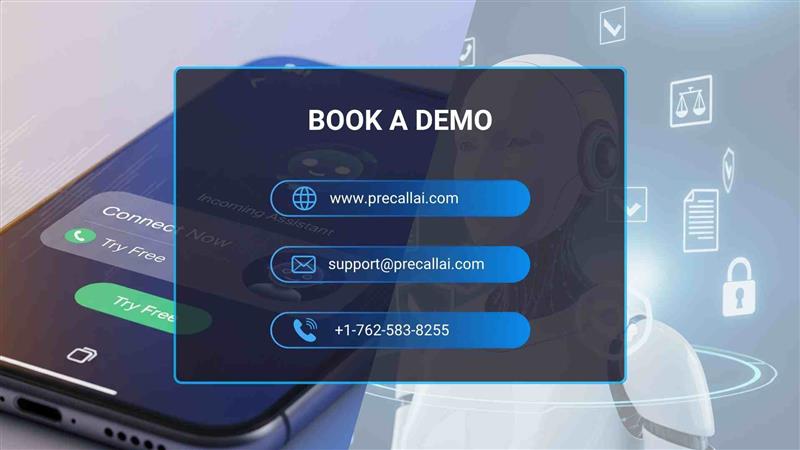
Court voice AI scheduling represents a fundamental shift in legal practice management. This legal process automation technology delivers measurable improvements in efficiency and accuracy. Law firms adopting these systems gain significant competitive advantages.
The technology eliminates common scheduling frustrations while improving client service. Legal professionals focus on substantive legal work instead of administrative tasks. Court systems operate more efficiently with automated scheduling assistance.


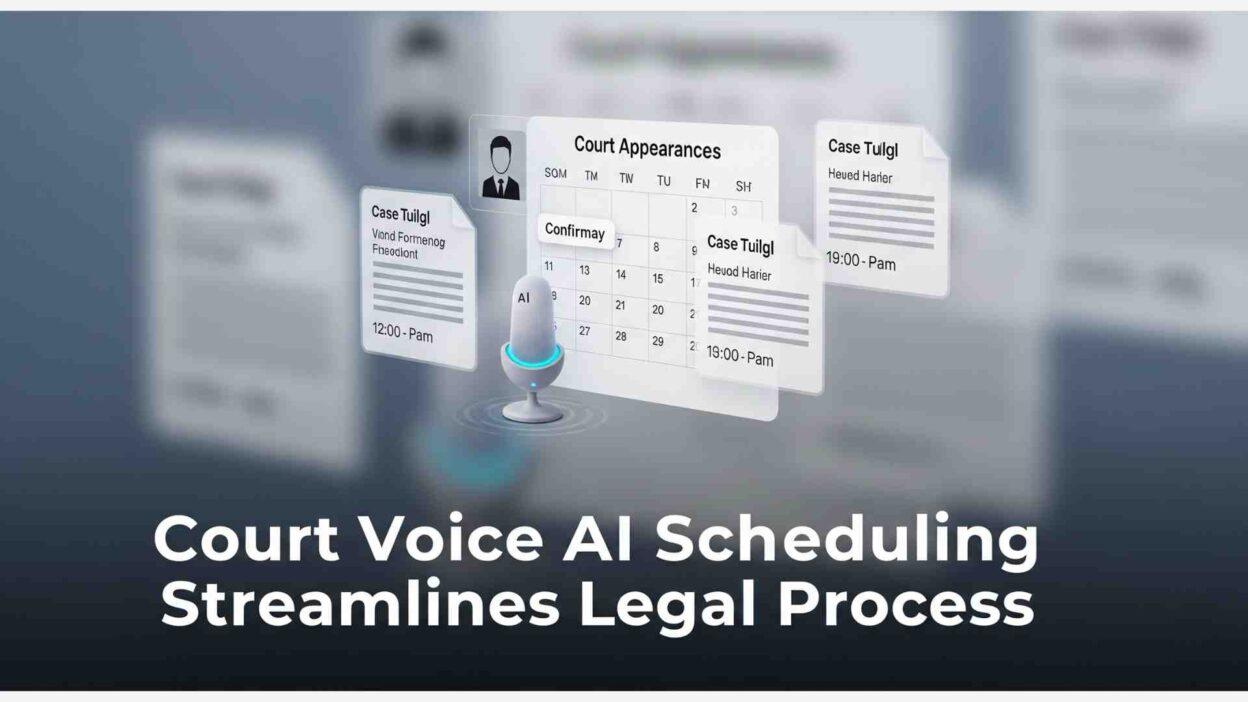
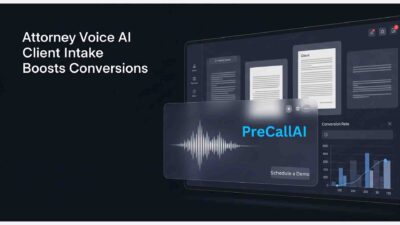
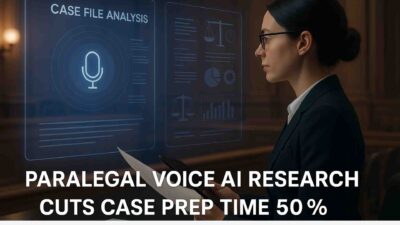
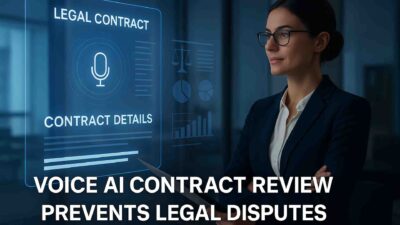
[…] procedures often lack specific timelines. Payment terms sometimes contain contradictory language. Voice AI contract review spots these problems […]